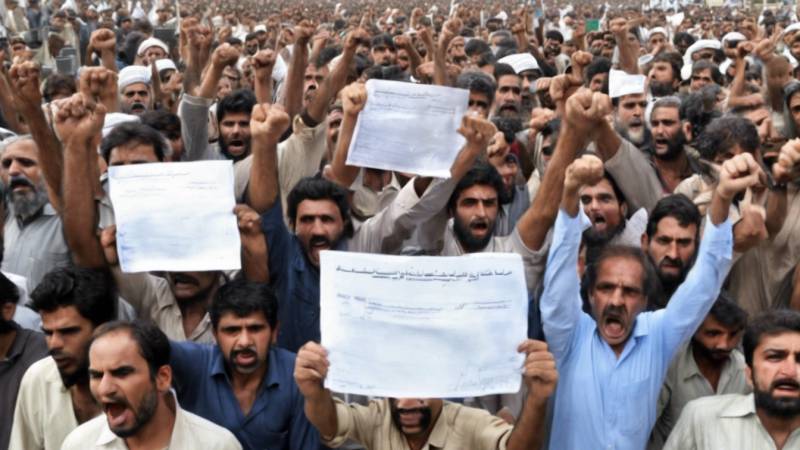
Without any doubt, the single biggest issue for most Pakistanis these days is the size of their monthly electricity bills. In recent months, they have seen them balloon to three, four, or even five times the usual amount, and many are finding it next to impossible to pay.
I have come across drivers, cooks, maids or gardeners, living in one or two-room quarters — with just a television, a fan, and a couple of lights (the more 'well-off' ones have a fridge) — who are getting bills of upwards of Rs20,000 or more. And the bills keep getting bigger and bigger, seemingly with no end in sight.
A point has been reached where for many lower-income and lower-middle-income people in the country, that the size of their electricity bills has begun to outweigh what they pay in rent or kitchen expenses.
Since electricity is something that everyone needs to live at the minimum threshold of comfort, and because most people don't have a choice except to pay up — or risk disconnection — we are now seeing situations where families are having to cut back on the money they set aside for food and the education of their children.
Agreements between governments and independent power producers (IPPs) in the past were skewed heavily in favour of the latter. At that time, there was a dire need to urgently increase power generation capacity in the country because of increased demand, but the contracts were so lopsided that the government committed itself to paying the IPPs a fixed charge regardless of whether it was even producing any electricity (otherwise called a 'capacity charge').
Over time, this ridiculous favour given to the IPPs resulted in a situation where the government ended up owing and paying hundreds of billions to these companies. These payments, towards a mostly non-productive activity, tended to divert and drain precious funds and resources that could have been put to far more productive use in other sectors of the economy than lining the pockets of the IPPs and their sponsors. Of course, these lopsided agreements could not have happened without the complicity of the government who agreed to the absurd logic of paying a power producer regardless of how much electricity his project was generating.
Pakistan's compulsion – in large part, has been driven by the inability of its governments to manage their finances responsibly and to raise the tax-to-GDP ratio to reasonable levels – to enter into IMF programmes means that one of the sectors that it has to withdraw subsidies from is the power sector
Fast forward to 2024, and we are now faced with a situation where, to pay for the capacity charges, the government keeps increasing the cost of electricity as measured in rupees per kilowatt hour. The result is that numerous taxes have now been levied on the consumption of electricity, as this process is so devoid of logic that the government has run out of labels of what to name these taxes – and identifiers such as 'super tax' or 'extra tax' are used.
These are levied on consumers because previous governments signed agreements heavily favouring IPPs and their owners, and because present governments have failed to re-negotiate these agreements. Pakistan's compulsion – in large part, has been driven by the inability of its governments to manage their finances responsibly and to raise the tax-to-GDP ratio to reasonable levels – to enter into IMF programmes means that one of the sectors that it has to withdraw subsidies from is the power sector.
Therefore, there are two points of pressure on ordinary consumers of electricity. One, that the government has to compensate for the massive payments it makes to the IPPs in the form of capacity charges. And two, successive IMF programmes have clearly and quite stringently stipulated a clear reduction and eventual removal of subsidies, most notably in the power sector.
The end result of all this is that consumers, who have been burdened with massive electricity bills for several months with no end in sight, are being offered seemingly empty promises by government ministers that a plan to reduce them is being worked out.
The government needs to understand the urgency of the situation and should work on a war footing to re-negotiate the contracts with the IPPs at rates comparable with the cost of power in other developing countries, and where income levels are the same as in Pakistan.
This, more than anything else, is something that most Pakistanis deeply care about — and they will forever be in the debt of any government that is able to quickly and substantially reduce the cost of generating power and thereby reduce the size of the electricity bills.

